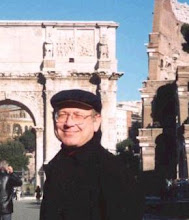Since the days of our founding fathers, the American ideal of individual liberty has been constantly besieged by the appetite of politicians for more power. Secretly, those politicians have gained much of their growing strength through a central bank that has allowed them to manipulate the individual through his pocketbook.
The nineteen century, even more than in our present time, was a time in which libertarians stood against the oppressive forces of an advancing central government. However, in those days, unlike our own time, it was the Democratic Party that defended the individual from the state. The Democratic Party of Jefferson and Jackson was the true libertarian party of that time, while it was the pro-bank Republicans of Hamilton and Lincoln that consistently undermined our Constitution in an attempt to increase the “implied powers” of the government to intrude ever more upon our freedoms.
By the beginning of the twentieth century, however, the roles of the two parties began changing. First, the Democratic Party gave up its losing cause for liberty. They joined the Republicans in the quest for a forceful government with a central bank, the only difference between them being the division of spoils among the party of political victory; the Republicans protecting incumbent business interests while the Democrats promising entitlements to the “little guy.”
Libertarianism in America finally began to regain a voice in American politics with the modern conservative movement under Barry Goldwater and Ronald Reagan. Although the Republicans have yet to prove themselves as the party of small government, libertarians can only hope that their cause is making it full circle from the Democratic Party of Thomas Jefferson to the “government is the problem” Republican Party of Ronald Reagan.
The mystery of how the statist (big government) cause went from the pro-business party to the pro-labor party can be easily explained if we follow the history of the dispute over our national banking cartel (presently called the Federal Reserve). From the beginning of the federal government’s growth as an institution to the current economic crisis, American political history has been secretly dominated by the quest for a national banking system that would have absolute control over the people’s monetary wealth. The so called “implied powers” that provides the government with potentially limitless authority was invented by Alexander Hamilton in his “Opinion on the Constitutionality of the Bank.” And, once that national bank system was created, banks and their political partners had the power to increase their power over the American people through fraud and deception and even cause depressions and credit meltdowns through their own incompetence.
Although our state-run schools have not included it in their curriculum, the most important theme in American history is the story of how the greedy forces from both the left and right have used the growing power of a central banking system to deprive the individual of his promised liberty. As further posts here will show, the libertarians’ fight for individual freedom must be largely directed at its natural enemy – the Federal Reserve banking cartel.
Tuesday, May 5, 2009
Subscribe to:
Comments (Atom)



